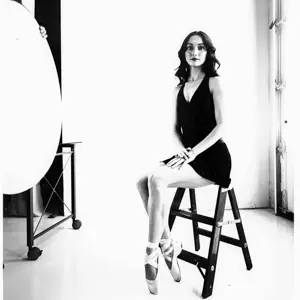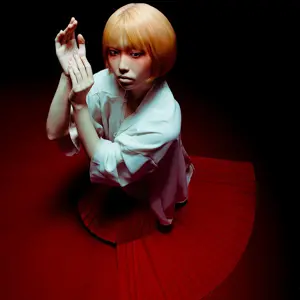Photography (BFA)
Photography (BFA)
The BFA degree builds on the core curriculum of fundamental principles by emphasizing the aesthetic and conceptual skills necessary for a professional portfolio. After completing the core curriculum, students choose to focus on commercial or editorial, fine art, or documentary courses. Upon graduation, students will be required to demonstrate an individual style and a unique approach to their chosen area of study.
AA MFA MA CERTBachelor of Fine Arts (BFA) Degree
Available Online & On Campus
Core Classes










Unit Requirements
| Major Coursework | Units |
|---|---|
| Core | 24 |
| Sophomore Portfolio | 3 |
| Senior Portfolio | 3 |
| Major | 39 |
| Electives | 9 |
| Liberal Arts | 42 |
| Total | 120 |
Degree Requirements
BFA PHOTOGRAPHY DEGREE REQUIREMENTS
- Minimum grade of C- in all major coursework.
- Minimum 2.0 GPA and the following general education requirements:
4 Art Historical Awareness courses
1 Art & Design Communication course
1 Written Communication: Critical Thinking course
1 Photography Marketing course
1 Historical Awareness course
1 Quantitative Literacy course
1 Cultural Ideas & Influences course
1 Employment Communications and Practices course
After above general education requirements are met, take Liberal Arts electives as needed to fulfill the Liberal Arts unit requirement.
Additional Information

Program Learning Outcomes
Undergraduate students will meet the following student performance criteria:
Conceptual and Problem-Solving Skills
- Make creative decisions that optimize conceptual impact, cohesiveness and memorability of created images
- Integrate key conceptual elements (such as mood, narrative, introducing the unexpected) with technical elements (such as composition, lighting, point of view) to suggest a story or elicit an emotional response from the viewer
Lighting Skills
- Master indoor and outdoor lighting, studio lighting techniques, lighting with constant light sources, and mixed lighting situations
- Work effectively with natural light and demonstrate understanding of the relationship between time of day and variations related to quality of light
- Work effectively with point source, flood, spot, diffused and reflected light
Camera Capture Skills
- Demonstrate full knowledge of digital SLR components
- Demonstrate complete understanding of exposure controls
- Effectively use a light meter for multiple lighting situations
Digital Imaging
- Apply advanced Photoshop techniques using various tools, layers, curves and selections with digital images
- Apply retouching skills and color correction knowledge consistent with industry standards
Digital Printing
- Produce professional quality prints
- Create high quality print portfolio demonstrating printing skill and overall quality of images required for petition to graduate
- Demonstrate understanding of archival qualities, including ink and paper stability
Professional Readiness
- Produce and present a professional portfolio that meets department expectations and industry standards
- Create promotional materials to support print portfolio and website
- Demonstrate knowledge of industry trends and professional practices related to professional photography
Academy of Art University Learning Outcomes
Graduates of the Academy of Art University will demonstrate the ability to:
- Produce a body of work suitable for seeking professional opportunities in their chosen field of art and design.
- Solve creative problems within their field of art and design, including research and synthesis of technical, aesthetic, and conceptual knowledge.
- Communicate their ideas professionally and connect with their intended audience using visual, oral, and written presentation skillsrelevant to their field.
- Execute technical, aesthetic, and conceptual decisions based on an understanding of art and design principles.
- Use professional terminology to evaluate their work and work in the field.
- Recognize the influence of major cultural and aesthetic trends, both historical and contemporary, on art and design products.
- Learn the professional skills and behaviors necessary to compete in the global marketplace for art and design
- Engage with a variety of communities beyond the classroom through internship opportunities, study abroad programs, athletics, student interest clubs, and participation in collaborative, civic, and pro bono projects.
*Semester plans are subject to change at any time. Semester breakdowns displayed are suggested and additional options are available to help customize your educational experience. Speak to an admissions or student services representative for more information. Please see our catalog for more details at: https://catalog.academyart.edu